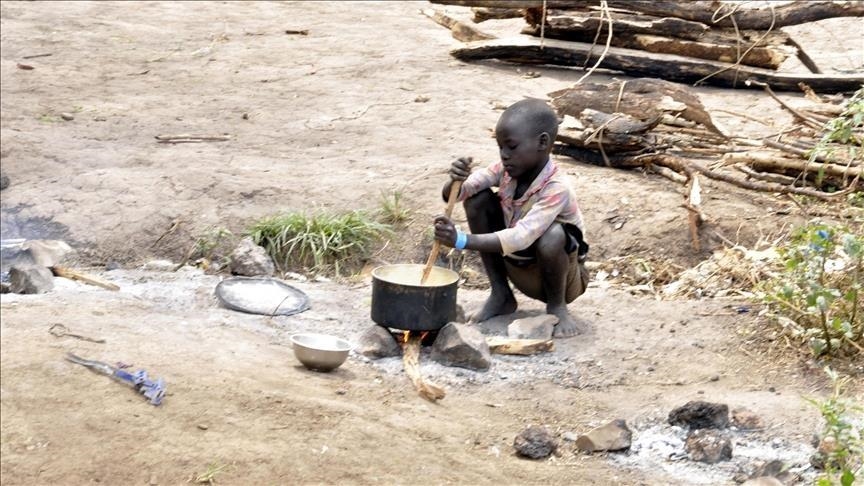

By Anadolu Agency
GENEVA
The latest report on food security on Wednesday said that global hunger levels have plateaued for three consecutive years after having risen sharply in the wake of the COVID-19 pandemic as one out of 11 people in world faced hunger last year.
“The world is still far off track” to achieve the sustainable development goal of zero hunger by 2030, according to the State of Food Security and Nutrition in the World (SOFI) report by UN agencies.
Noting that between 713 and 757 million people may have faced hunger in 2023 in the world – and one out of every five in Africa, the report found that considering the mid-range (733 million), this is about 152 million more people than in 2019.
Hunger is still on the rise in Africa, it said, but it has remained relatively unchanged in Asia, while notable progress has been made in the Latin America and Caribbean region.
Africa remains the region with “the largest proportion of the population facing hunger” with 20.4 percent, compared with 8.1% in Asia, 6.2% in Latin America and the Caribbean, and 7.3% in Oceania, it found.
However, the report said, Asia is still home to more than half of all those facing hunger in the world.
“The lack of improvement in food security and the uneven progress in the economic access to healthy diets cast a shadow over the possibility of achieving Zero Hunger in the world, six years away from the 2030 deadline,” it said.
According to the report, it is projected that 582 million people will be “chronically undernourished” at the end of the decade, “more than half of them in Africa.”
It underlined the need to accelerate the transformation of agrifood systems to strengthen their resilience to the major drivers and address inequalities to ensure that healthy diets are affordable for and available to all.
‘Poorest people paying highest price’
The UK-based charity Oxfam described the high levels of global hunger as “shameful,” saying it is driven by many reasons that together become “convenient excuses for our governments to avoid decisive action.”
“We grow enough food to feed people everywhere in the world and there are solutions to eradicate this terrible scourge,” it said.
Drawing attention to the fact that countries facing “high levels of hunger tend to be poor, highly-indebted, even exploited,” it said those countries are also “most vulnerable” to climate-related and economic shocks.
“The UN today identifies a hole of trillions of dollars needed to end hunger,” it said and added: “Only bold political action can fill this gap.”
Oxfam noted that private financing can only be a partial situation, underlining the requirement of more public funding, especially into smallholder farmers in poorer countries. Stronger social protection schemes, wide-scale debt relief, and for rich countries to meet their humanitarian and climate finance pledges also needed, it said.
“The world’s poorest people are paying the highest price of hunger. We need deeper, structural policy and social change to address all of the drivers of hunger, including economic injustice, climate change and conflict,” it urged.
We use cookies on our website to give you a better experience, improve performance, and for analytics. For more information, please see our Cookie Policy By clicking “Accept” you agree to our use of cookies.
Read More